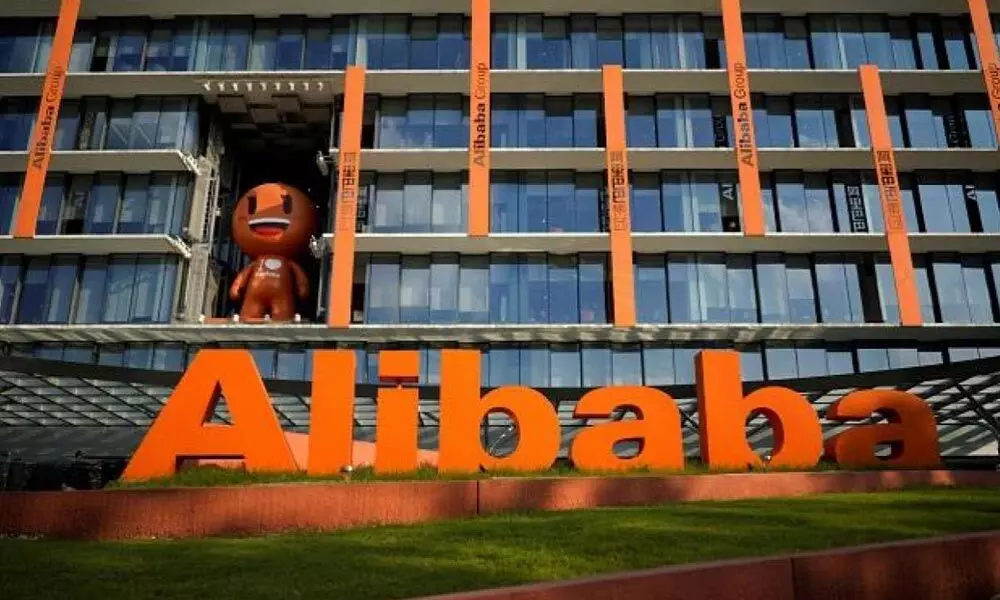Does China even know what a monopoly is?
Now, Beijing is targeting domestic players, which are more crucial where consumers are concerned. The internet companies at the centre of this drive haven’t previously come under such scrutiny and were relatively free-wheeling
image for illustrative purpose

Beijing needs to put away the broad brush and use more finesse in tackling market dominance by its tech giants
How does Beijing define a monopoly? Could one be a national company with a 48 per cent market share in the economically booming southern province of Guangdong and just 10 per cent in the far northern rust belt of Heilongjiang be one? It's unclear, and that ambiguity risks destroying China's tech-enabled social infrastructure with a new campaign to cut giant businesses down to size.
The investigations into alleged monopolistic practices of Alibaba Group Holding Ltd. and the big sway of Ant Group Co. have been accompanied by sharpening various antitrust regulations. The latest central bank definitions would make an institution with more than half the market in national payments (including online and mobile) a monopoly. That follows November guidelines that zeroed in on several practices, including the controversial 'picking one from two' where e-commerce merchants are forced to choose a single marketplace for exclusivity. When it comes to monopolies, it's important to ask how targets and activities are defined and identified, what the characteristics of too powerful a player in the market are, and whether status varies across sectors.
Companies like Meituan and Alibaba have enabled businesses and hundreds of millions of consumers to get food delivery, make payments, shop and take loans straight from their phones. They've become deeply ingrained in China's social infrastructure. But regulators have to contend with how much power they should have. Dominance over the basic food network at a time the pandemic is effectively forcing delivery, or over the purse strings of how people pay, could turn contentious. These firms are as ubiquitous - if not more so - in everyday life in China than Amazon.com Inc and Alphabet Inc.-owned Google are in the US. It's a fine line between being rewarded for providing superior service and just being the commanding player in a market.
China has often used its anti-monopoly law, implemented just over a decade ago, to take on foreign entrants. Qualcomm Inc. ended up paying a $975 million fine, one of the country's largest, following an investigation into anti-competitive practices. Authorities imposed fines of around 20 billion yen ($193 million) on Japanese auto parts makers for price-fixing violations. On average, penalties of 1.8 million yuan (about $278,000) have been levelled for abuse of dominant market position, according to an analysis by the South China Morning Post.
Now, Beijing is targeting domestic players, which are more crucial where consumers are concerned. The internet companies at the centre of this drive haven't previously come under such scrutiny and were relatively free-wheeling. The rules focus on three broad areas including: (1) market concentration or merger control, (2) agreements between competitors that lead to price fixing or limits on production or resale prices, and (3) abuse of a dominant market position.
By comparison, the analogous US laws date back to the Sherman Antitrust Act of 1890 and break things down further. The American rules cover a range of sectors and are focused more on consumer protection, and less on the producers and companies involved. For instance, the legal code details a framework for evaluating agreements between competitors based on guiding principles and goes in-depth on various types of mergers, enforcement and the like. There's significant detail on interpretation of issues such as price fixing and bid rigging.
As Chinese consumers become front and centre of Beijing's economic policy agenda going into 2021, the powerful hold of the tech giants is worrying. Their super-apps have prevailed where the State hasn't. These companies weren't created and subsidised by the State as industrial enterprises (which, in fact, created monopolies). International competition may have been kept out or didn't cut it, but the domestic technology sector thrived with stiff competition. Richard Ji, founder of the venture capital firm All-Stars Investment, told the Financial Times: "For every IPO [initial public offering] of a tech company, there are 40,000 startups who don't make it."
But can retrospective regulatory moves now create a truly free market? Reducing Alipay to a 49 per cent market share from 50 per cent and Tenpay, known for WeChat, to a bit more from its current 39 per cent wouldn't seem to move the needle on real competition. Breaking down these companies and their reach to make way for others with potentially less user trust would have more impact. But that may run counter to what Beijing has tried so hard to do - create a digital infrastructure. Chinese consumers aren't starved for choice in services. Taking away the convenience and efficiency they've grown accustomed to may be more problematic.
China's latest five-year plan is about building fifth-generation networks and new-economy infrastructure. Crude, catchall and reactive regulation could undermine such ambitions. These goals can coexist only if the rules of the game are clear. More money to be made means more competition; too much regulation threatens the opposite. Rules will be more effective if they're sector-specific. Payments are different from food delivery or search engines. Hoping that businesses will operate fairly within the confines of three broad buckets is short-sighted and simplistic.
As dangerous as potential market misbehaviour may be, consumers have benefitted from giant companies, especially in the times we're living through. Much like WhatsApp and Facebook have become economically vital effectively as consumer welfare goods, China's players now serve a critical social purpose. Finesse and full disclosure would be the smart path forward, not major surgery. (Bloomberg)

